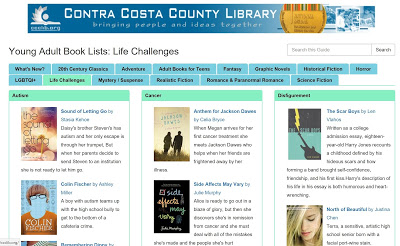It’s weird, you know, when you see your book on one of these library “issues” lists. It’s cool, of course, to know that someone actually has a hard copy on a shelf somewhere. But there’s always a part of me that wonders two things: (1) Is my book really just about an “issue” – because, when I wrote it, I was thinking about siblings and families and music and high school and growing up you know? and (2) If there are teens who face these issues in their lives, is my book doing them good?

Which brings me to the larger question: Are the books in which we most clearly see ourselves the ones that inspire, guide, speak to us most deeply? Could my book be balm to the soul of a person trying to understand the meaning of loneliness – the differences between need and love? When you think of the stories the touched your heart growing up, were they stories about the “you” that existed, the “you” of your most secret dreams, or a “you” as yet unimaginable – your connection to the narrative being the indefinable sort that means so much but cannot be put into words.
Honestly, these sorts of “issues” lists help keep The Sound of Letting Go in print. I hope that its inclusion means that librarians, educators and other people dedicated to helping young adults think that the story I wrote adds value to the canon, but there’s no denying that it’s a kind of pressure – and maybe its own sort of limitation.


